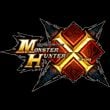Monster Hunter Generations: Multiplayer
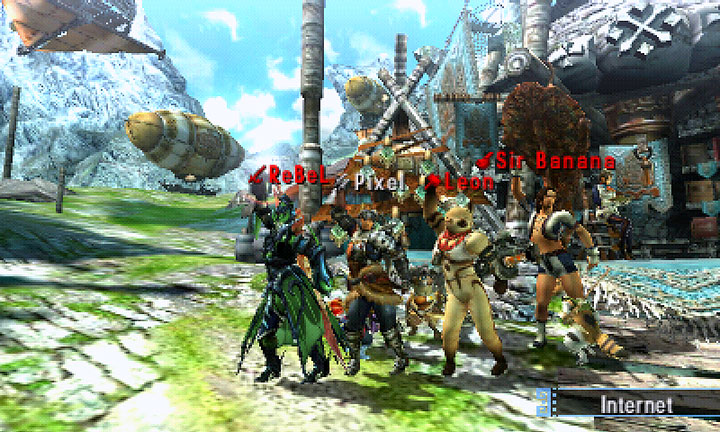
Multiplayer is one of the most important elements of each Monster Hunter game and it's one of the things that made the game so popular - especially in Japan and in the West. Thanks to multiple available roles and great diversity in player combat styles, each multiplayer hunt can be a new experience. There are no "wrong" team compositions in MHGen - it all comes down to how experienced the players are. MHGen can be treated as a MMO title, in which a good team consists of a tank (someone who takes most of the enemy attacks on himself), healer (as well as buffer) and two players focusing on dealing damage (both from close and long ranges). The best weapon distribution in a party should allow your team to destroy most, if not all, part of the beast's body. Before the hunt begins you must decide whether the monster has to be killed or captured alive. This will allow you to prevent some misunderstandings, as the game lacks any voice communication and chatting in the middle of an encounter is impractical as well.
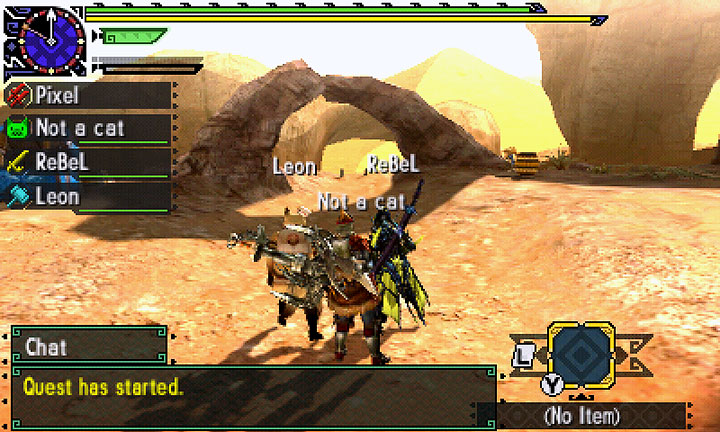
To join a multiplayer game you must head to the Hub (located in the middle of the village map, on the bottom screen). You can either join a room created by another player, or create your own one. Unfortunately, there's no way to find rooms created by players that are strangers to you - you can only see rooms crated by your Nintendo friends. If you want to play with strangers, you must send a long ID (Hub ID) of your room to them (as Nintendo still lives in the 90s and thinks that rewriting long sequences of signs is the state of the art tech). When all of the players are finally in a room, one of the players can select the quest they will all depart on and the rest of the party must accept it via the notice board in the hub. When all of the players are ready, they have to approach the exit and confirm it (as seen by a flashing icon over their heads). Afterwards, the host will also confirm and all can finally depart on the quest. If the host confirms before all of the players did it, some of them might get kicked out of the room.
Quests in the Hub can be completed on your own, but you must remember that those are prepared for a group of four players. It means, that regardless of the number of people in your party, the difficulty level will be adapted to a team of four players. Hunting in a weakened squad will require a lot more skills, patience and discipline, especially when dealing with more difficult quests. What is more, team failures work exactly the same as in single player mode - third fainting of the character means that the quest is failed, but faints are counted for the whole party, not for single members. It means that it doesn't matter if three different people died once, or a single person did it three times in a row - the quest will be failed and you will be returned to the Hub.
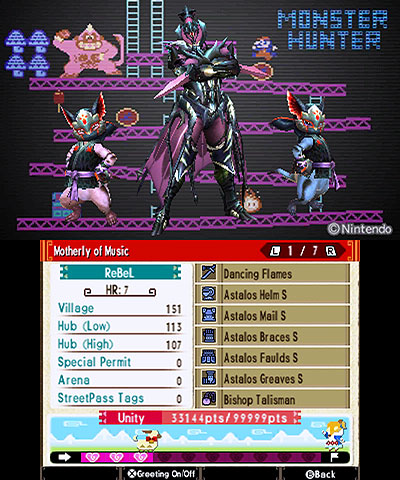
By connecting with other hunters online you should remember about trading Guild Cards from the menu. This isn't a necessity, but it's a thing worth noting. You just have to trade cards with a newly met player once to start gaining benefits of it. First things first, trading cards will allow you to gradually gain unity points, which can be used to gain various rewards. Secondly, trading cards also allows you to gain new crafting materials without any activity from your side. Each player whose card you've acquired will visit your hub in offline mode as an avatar. You can have a conversation with such an avatar and hire him to go on a hut in your place (but you can't go together with him). This function is called Hunters for Hire. You must pay for such a service, but it's not a huge amount. While hiring an avatar you can decide how many companions he can take with him and randomly generated characters will join his party afterwards. The costs of hiring increase with the amount of mercenaries, but it also increases the chances of success and the amount of crafting materials you will gain from it.
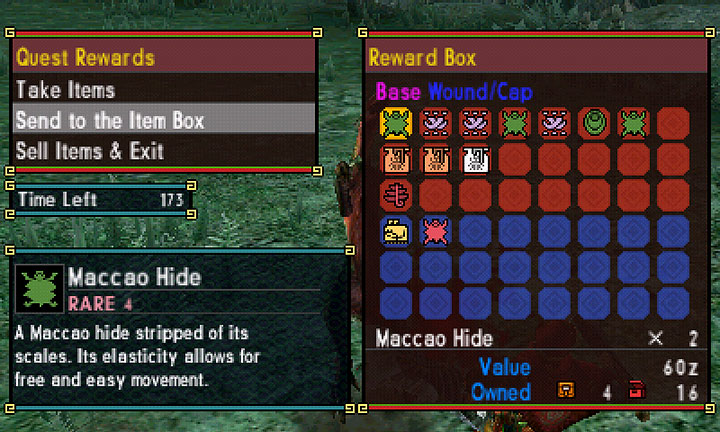
After the hunt, each player receives the same pool of rewards and each player can "cut off" the same amount of crafting materials from the body of the beast. The pool of rewards is random for each player. This means that meeting specific conditions (like cutting the tail of the monster off) won't mean that every player will receive the same unique material and in the same quantity. The randomness is part of the fun in Monster Hunter - otherwise you will just have to go on a specific quest once, complete it and forget about it afterwards. Even such a "grind" can be a lot of fun with proper team and there aren't many such satisfying moments in games as hunting with a good and perfectly organized team.
You are not permitted to copy any image, text or info from this page. This site is not associated with and/or endorsed by the developers and the publishers. All logos and images are copyrighted by their respective owners.
Copyright © 2000 - 2025 Webedia Polska SA for gamepressure.com, unofficial game guides, walkthroughs, secrets, game tips, maps & strategies for top games.
